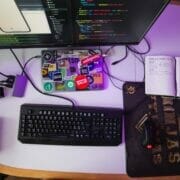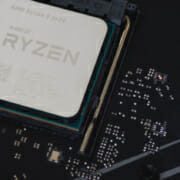What Are The Best Tools For Android App Development?
When embarking on the Android app development journey, you’ll need to choose the right tools. Google provides several excellent tools at no cost to developers to help them get started. But third-party vendors such as Microsoft and Unity also offer Android developers powerful and versatile solutions. We’ll be covering these in more detail below.
1. Choosing The Right Tools For Android App Development
The world of Android software development can be fascinating and rewarding, provided you choose the right tools. Fortunately, there are several mature and robust tools on the market that facilitate a smooth development process. Here’s a shortlist of tools that every Android developer should have as part of their toolchain:
Android SDK – The official software development kit (SDK) that makes Android mobile app development possible. It contains several battle-tested libraries and tools for building, compiling, debugging, monitoring, and testing apps.
Android Studio – All developers need an integrated development environment (IDE) to make their ideas come to life. And Android Studio is the quintessential IDE for Android developers, even though there are many alternatives in the marketplace. Moreover, it’s the official IDE for the Android platform and comes with an emulator, image files, and SDK.
Unity – If you’re developing augmented reality (AR) and virtual reality (VR) apps or games, consider using Unity. It’s a versatile game engine, renowned for its powerful and user-friendly editor and ability to build games for the most popular platforms with a single click. To target Android, you’ll need to download the Android Build Support module together with Android SDK/NDK and Open JDK.
2. When To Use Another IDE Instead Of Android Studio
If you’re building native Android apps or targeting the platform exclusively, you’ll probably want to stick with Android Studio. But if you’re targeting Android, iOS, and Windows, you may prefer a cross-platform solution. And one of these is Xamarin, which utilizes Microsoft’s rich .NET ecosystem and tooling and offers native performance. However, Xamarin requires Microsoft’s Visual Studio 2019 IDE as a prerequisite.
3. Why You Should Consider Using Firebase
For a simple mobile app, you probably won’t need to access cloud services. But if you’re developing something more complex, you may require a suite of tools that allow easy integration to Google’s back-end infrastructure. And if you need analytics and authentication together with AdMob integration, then Firebase is a solid choice. Before forging ahead, consider Firebase’s pricing and hidden costs to see if it fits within your budget.
4. Always Profile And Test Your Mobile App
Your development team may be incredibly talented, but it would be a mistake to ship your app without profiling and testing beforehand. The good news is that both the Android SDK and Android Studio come with powerful profiling tools.
Android SDK includes the Dalvik Debug Monitor Server (DDMS) that allows developers to emulate phone calls, examine threads, profile methods, view the heap, and gather information about the CPU, GPU, and frame rate. And the Android Studio IDE offers real-time monitoring of the CPU, GPU, memory, and network.
5. Android Software Development Is Constantly Evolving
Without a doubt, Android app development will be around for a long time still. There’s a massive international audience with an insatiable appetite for innovative apps released on the Google Play Store.
And while most developers will want to support both iOS & Android, they can’t go wrong if they can only support Android at the start. Moreover, they’ll find that Android’s tooling will only get better and more diverse with time. Contact us today to learn how NS804 can help you with your Android software development endeavors.













Leave a Reply
Want to join the discussion?Feel free to contribute!